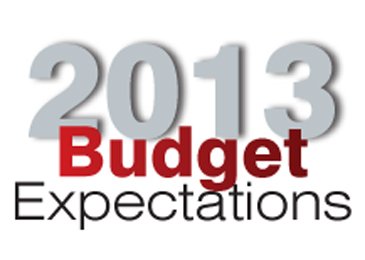What Indian biotech wanted from the Budget 2013- Part 1
February 28, 2013 | Thursday | Features | By BioSpectrum Bureau
What Indian biotech wants from the Budget 2013- Part 1
The biotechnology industry in India during FY 2011-12, generated Rs.20,441 crore in revenues and registered 18.55 percent growth. But the gross domestic expenditure on R&D is just 2.1 percent of that of global R&D and there are less than 350 biotech companies in India. This nascent biotech industry needs a financial push from government. With a population of over 1 billion, biotechnology industry has ability to be an indigenous solution provider for India in combating poverty, addressing drastic climatic changes affecting agriculture, and provide technological breakthroughs against life threatening diseases.
Here is what the Dr Rajesh Jain, joint managing director, Panacea Biotec and also chairman, Biotechnology Sub-Committee, Confederation of Indian Industry (CII), which has 40 biotechnology companies as its members states:
1) Offer concessional loan and non refundable grants to R&D activities
2) Weighted Deduction on Expenditure incurred outside R&D facility to be allowed to 200 percent u/s 35 (2AB) of IT Act 1961. With weighted deduction only available for expenditure on in-house R&D facilities, it ignores the fact that Indian companies incur immense expenses on NCE (new chemical entity) and other filings with the US FDA. Since pharma discovery research entails a lengthy, risky and expensive process, provision should specifically be made for:
- Weighted deduction or expenses incurred outside the R&D facility.
- Clinical trials done in approved hospitals and institutions should also be covered within the ambit of expenditure eligible for weighted deduction of 200 percent in section 35 (2AB).
3) Making critical life-saving drugs available to patients at reduced rates lowers treatment costs for many ailments. Early disease diagnosis also reduces therapy costs and saves lives. Hence it can be proposed that:
- All life-saving drugs should be exempt from Customs Duty
- All medical devices and pharma/vaccine R&D equipment should also be exempt from Customs Duty.
- Also Government of India should be more liberal to offer concessional loan and non refundable grants to pharma/ vaccine R&D activities.
Here are the recommendations from FICCI:
Exempt Duty for antigens / antibodies used in diagnostic kits:The import of raw materials such as antigens/ antibodies or any other ingredient corresponding to the manufacture of diagnostic test kits specified in list 4 put the local manufacturer at disadvantage in comparison to imported finished diagnostic test kit specified in list 4 which is imported at nil Duty. The notification should therefore include: "Bulk drugs/antigens/antibodies (monoclonal/polyclonal)/ raw materials/components used in the manufacture of life saving drugs /medicines including their salts and esters and diagnostic test kits".
The following items which were a part of the now abolished List 37 need to be included in List 4 under notification No.12/2012-Customs, dated 17/03/2012 to allow for a level playing field for both Indian manufacturers and importers.
- AIDS (Acquired Immune Deficiency Syndrome) test kits
- TPHA kits and AIDS diagnostic kits.
- Rapid diagnostic kit for detecting infection with malaria parasite / Tuberculosis (TB)
- Australia antigen/ HBsAg kit.
- HCV (Hepatitis C Virus) by any technology.
- Dengue detection systems/kits.
Exemptions for components for Elisa kits to be expanded: The list that provides the benefit of lower duty may be extended to include antigen or antibody on the solid phase for coating. The other key component is the enzyme conjugate and their stabilizing buffer/solutions. It is important to put the local ELISA kit manufacturers at par with the importers because all finished ELISA kits are imported at nil Duty as per item no. 36 of List 4.
With abolishing of List 37, all diagnostic devices are now covered under Chapter 90 (9027). They therefore attract high Duty rates and it is recommended that they be charged to NIL Duty to encourage access to newer technologies. Further Duty on manufacture or import of diagnostic reagents to be reduced to encourage manufacturing in India. That apart Duty structure of following items should be rationalized:
Excise Duty for manufacturing of diagnostics reagents may be made nil from existing 10 percent to allow cost benefit to indigenous manufacturer.
Duty exemption be based on test rather than analyte for critical tests. Customs tariff for diagnostics kits is based on technology rather than the analyte causing anomalies for the critical tests such as blood banking panel, HIV, HBSAG, HCV, Sepsis Marker, procalcitonin (PCT) and tests of auto immune diseases (ANA and ds DNA).
The Federation of Indian Chambers of Commerce and Industry (FICCI), an association of business organizations in India.
(Click here for the industry bodies ABLE, OPPI and IAIA recommendations for the budget 2013)









